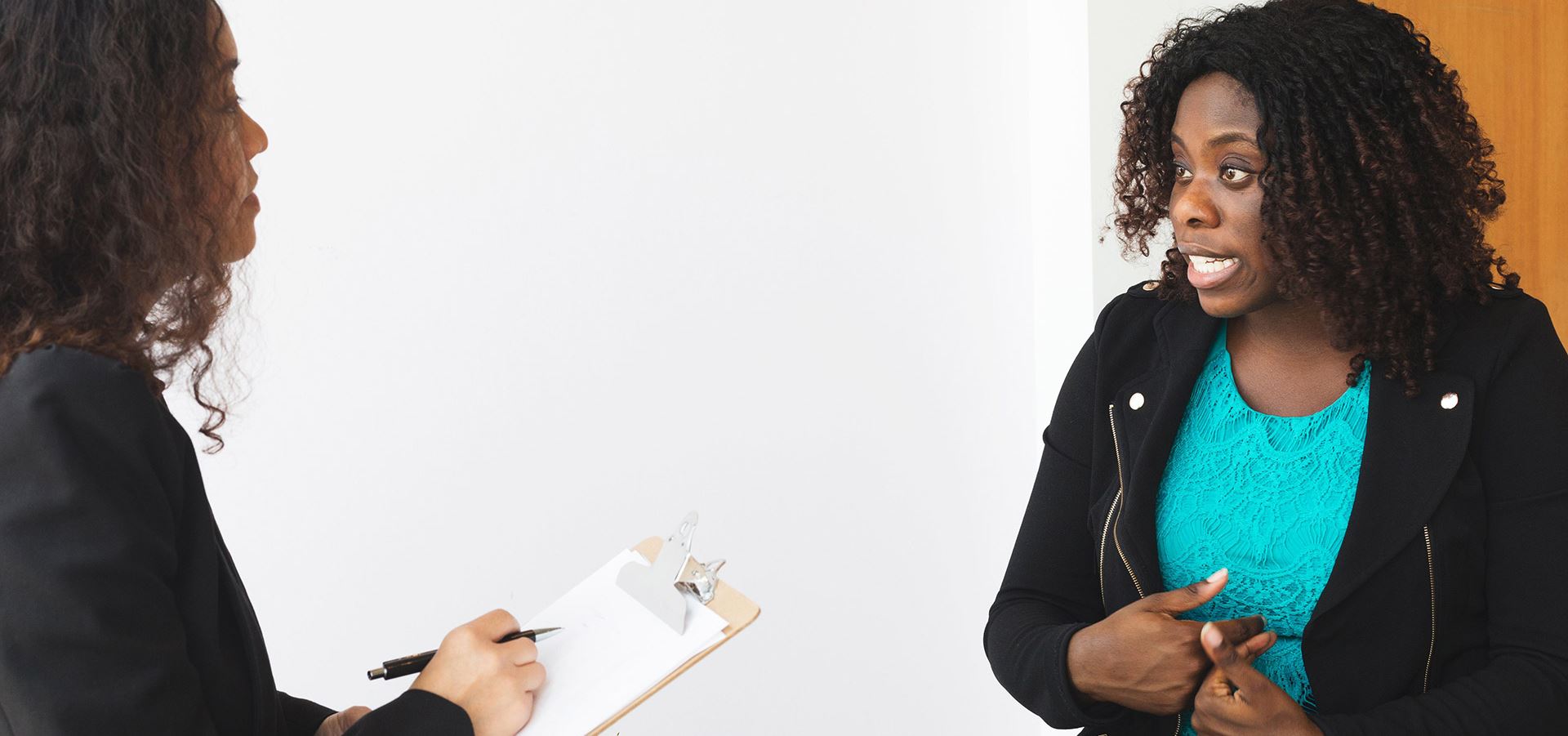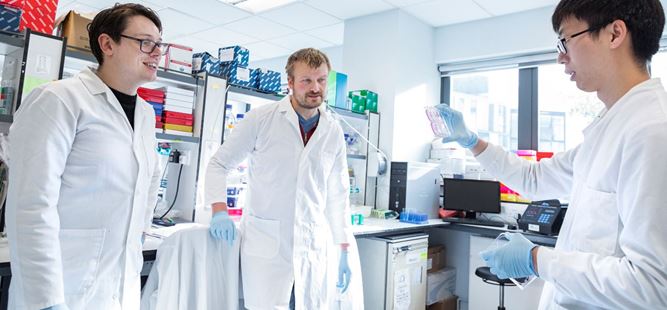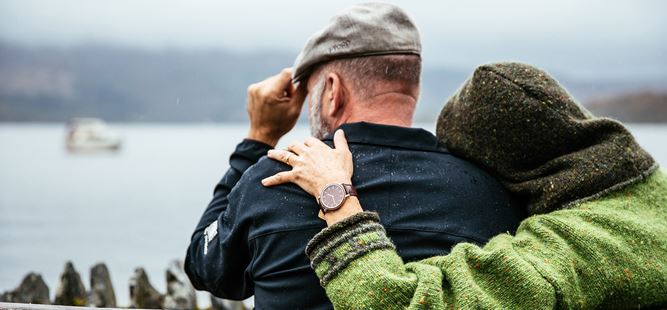Cancer and mental health - Supporting cancer patients through research
7th September 2021
A cancer diagnosis can feel like the end of the world. It also often comes with a feeling of uncertainty – what are the next steps, what does my future hold, what about my family? Cancer patients can experience immense psychological distress before, during and after their diagnosis and treatment and researchers are trying to find ways to support people better during these difficult times. Although this an area of research we don't fund, we recognise it's importance to the cancer journey faced by patients. We spoke to Dr Monica Leslie, an expert on the subject, to find out more.

What is psycho-oncology?
Psycho-oncology is the field of study focusing on attitudes, emotions, and behaviours related to cancer. Research conducted in psycho-oncology focuses on a range of experiences and different stages of the cancer journey: From encouraging behaviours for cancer prevention, addressing anxiety about cancer screening and helping people manage the understandable concerns that may emerge around diagnosis, through to supporting people to transition to life after cancer or supporting high-quality end-of-life care.
Online support for people with cancer
I am currently working on a clinical trial called Finding My Way UK, which is being led by Prof Nick Hulbert-Williams at the University of Chester and funded by North West Cancer Research. In this study, we are investigating how well an online psychological support programme works in reducing distress and supporting the wellbeing of cancer patients and survivors in North West England and North Wales.
Current evidence suggests that cognitive-behavioural therapy is the gold-standard treatment for supporting cancer patients and survivors with their mental health concerns. However, many people experience barriers in accessing mental health support, including difficulties with transport to face-to-face psychological services and difficulty with finding the time to schedule further appointments.
One of the most promising programmes of online support developed so far is called Finding My Way. This interactive website, developed by Associate Professor Lisa Beatty and colleagues in Australia, is based on the principles of cognitive-behavioural therapy. In this programme, cancer patients and survivors are provided with access to written information, video advice from psychologists, oncologists, and other cancer survivors, and interactive exercises to help patients work through their own worries and concerns. We now want to test if a version of Finding My Way can be adapted for a UK audience, and if it can be as effective in supporting UK cancer patients and survivors.
We’re all so much more used to being online these days and we know that some groups of people feel that online psychological support is much less stigmatising and more accessible.
Making support more accessible to cancer patients
The COVID-19 pandemic has exacerbated difficulties that many people already faced in accessing face-to-face psychological support. Additionally, while many cancer patients and survivors benefit greatly from face-to-face counselling and support groups, these forms of psychological support are not necessarily the best fit for everyone. We’re all so much more used to being online these days and we know that some groups of people feel that online psychological support is much less stigmatising and more accessible.
The Finding My Way UK study is important because, if we find that the UK-adapted version of Finding My Way is effective at supporting wellbeing and reducing the need for other healthcare services, this means that we will have identified a new, convenient way to support British cancer survivors while also saving the NHS valuable resources.
Integrating mental health support into cancer care
Psychosocial support services have not always been integrated into cancer care. It was only when patients started to be made aware of their diagnosis from the 1950s that research into helping patients to cope with diagnosis and treatment could begin.
Today, advances in screening and treatment have now led to vastly improved survival rates, and the scope of psychosocial oncology has increased in tandem with this.

What services are available for patients on the NHS at the moment?
Psychosocial oncology is now a well-integrated part of oncology care, so many people will have access to a psychologist or psychiatrist, a counsellor, or a Macmillan nurse as part of their multidisciplinary cancer care team. For cancer patients who do not currently have contact with one of these clinicians, it may be worth having a conversation with one of the other members of your cancer care team if you feel that you would benefit from additional psychological support.
Social workers and occupational therapists also play very important roles in helping people live with and beyond a cancer diagnosis. If you feel that you or a loved one would benefit from further support from one of these specialties, you can discuss your options with your GP or another member of your cancer care team.
What can an individual do while they wait for care?
Specific psychological and social needs will differ from person to person. At the time of diagnosis, it may be worth spending some time to reflect on what your practical, emotional, and social needs are. For example, some people may want to spend more time with friends and family, while others may feel that they need more time to themselves to reflect and re-charge. It’s important to identify that your needs may be different from those of other people, and that your needs and preferences may change throughout the course of treatment.
Be sure to follow any advice given to you by your doctor about preparing for treatment and let them know about any worries you have or if you feel that you would benefit from additional counselling or other formal psychological support.
Like what you are reading? Sign up to our newsletter to get the latest cancer research breakthroughs, news and expert views delivered direct to your inbox.
Sign up for our newsletter
Further reading

What do the experts think is the future of cancer research?
The experts give their views on hot topics in cancer: Rare cancers, stopping the spread of cancer, personalised medicine and immunotherapy.
03 September 2021

Blood cancer breakthrough could be start for new therapy
Researchers in Italy have discovered a way to treat leukaemia by engineering immune cells taken from healthy donors.
11 August 2021

Worrying new research shows cancer survival is worse in poorer areas of Scotland
Statistics from Public Health Scotland show that there seems to be a marked divide in survival rates between the wealthiest and the poorest people in Scotland.
16 April 2021

